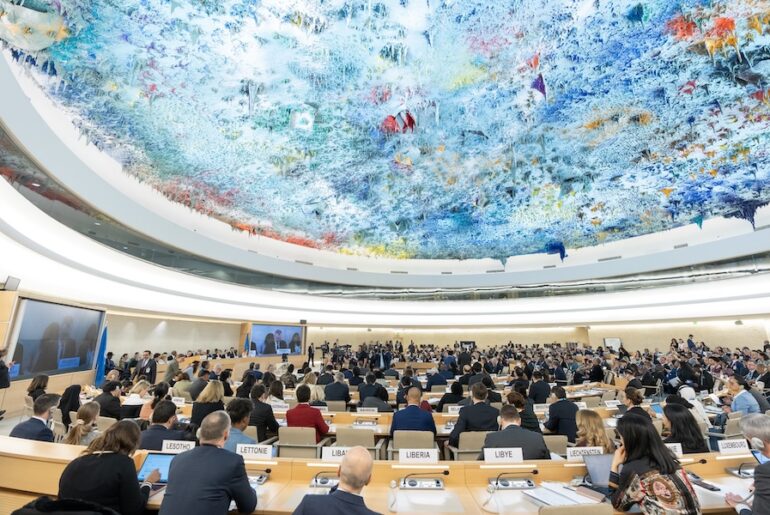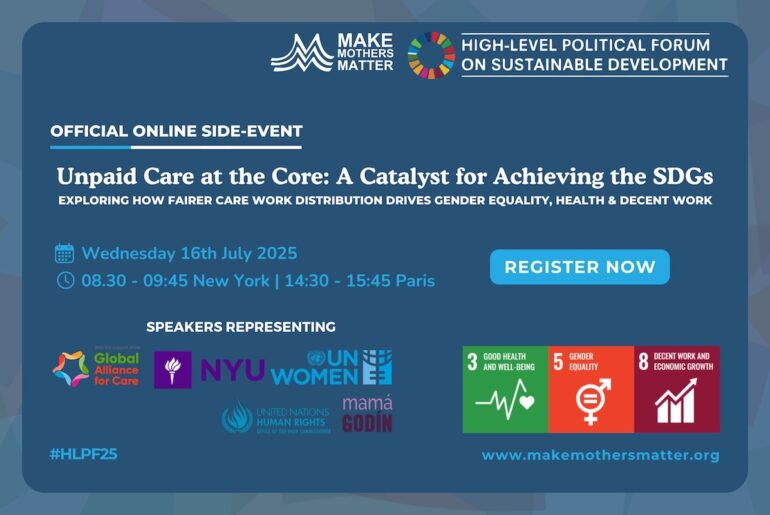Unpaid care work is not a burden
08.04.23
UN Geneva - In recent years, MMM has strongly advocated for eliminating the use of the word ‘Burden’ in association with unpaid care work. Many people have talked and written about the ‘burden of unpaid care work’, which goes against the idea – and our objective - of recognizing this work as valuable, even foundational work. Our efforts have paid off and we can now claim a small victory as it has disappeared from most UN reports, UN resolutions and other adopted texts.

It all began in 2017 at the 61st session of the UN Commission on the Status of Women, where MMM was invited as a speaker to a side-event organized by Switzerland. This provided us with the opportunity for an open discussion with the diplomats involved in the negotiations, and the word ‘burden’ disappeared from the CSW61 agreed conclusions.
We have continued our fight against the use of this word, rallying other Civil Society Organizations, and getting resolutions and other UN documents amended, including at the 52nd session of the Human Rights Council, which has just closed.
Our rationale
We should stop associating the word ‘burden’ with ‘unpaid care work’ – for 2 mains reasons:
- Although the drudgery of such domestic tasks like fetching water or collecting wood must indeed be recognized and addressed, unpaid care work is about caring for people, children, and older persons in particular; it is therefore essential, valuable and meaningful work, which sustains our society and the economy, and it must absolutely be recognized as such rather than a ‘burden’ – the word ‘burden’ devalues the work of Care
- If we want to engage men in doing their fair share, we must present it as valuable – if not always enjoyable – work, rather than a ‘burden’!
In addition, we at MMM argue that unpaid care work develops vital skills, soft skills/life skills in particular, of huge importance in the labour market. These include organizational, human relations & empathy, even negotiation skills….In fact, unpaid care work should be considered as valuable work experience!
Language is critical as it shapes people’s perceptions of an issue and how it will be addressed. Hence our advocacy work against the use of this word.
Today, the word ‘burden’ has mostly disappeared from the UN language, even if it still pops up here and there.
It is all the more important as the issue of the inequitable distribution of unpaid care work has gained visibility and is now on the global agenda.
Envisioning care as a common thread to global crises
29.07.24
UN New York - Our virtual HLPF side-event brought together experts to shed light on how the various global crises we face (in particular climate change and other environmental crises,
We call for multi-stakeholder approach to recognise and support unpaid care work
21.07.24
UN New York - Participating in the meeting of the UN Economic and Social Council (ECOSOC) on care and support systems, MMM reaffirmed the principle of co-responsibility, which should underpin
The New EU Gender Equality Roadmap : A Call for Inclusion of Mothers
04.03.25
The European Commission’s initiative on a new Gender Equality Roadmap post-2025, marks a significant step forward in addressing gender disparities across the European Union. Make Mothers Matter (MMM








